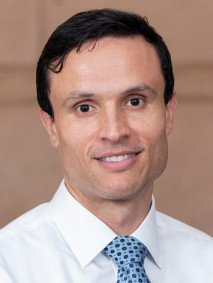COVID-19 impact on interventional pulmonology training Journal Article
| Authors: | Kalchiem-Dekel, O.; Schwalk, A. J.; Patel, N. M.; Lin, I. H.; Beattie, J. A.; Husta, B. C.; Chawla, M.; Sachdeva, A.; Akulian, J. A.; Musani, A. I.; Argento, A. C.; Lee, H. J.; Mullon, J. J.; Desai, N. R.; Hsia, D. W.; Lee, R. P. |
| Article Title: | COVID-19 impact on interventional pulmonology training |
| Abstract: | Background: The impact of the coronavirus disease (COVID-19) pandemic extends beyond the realms of patient care and healthcare resource use to include medical education; however, the repercussions of COVID-19 on the quality of training and trainee perceptions have yet to be explored. Objective: The purpose of this study was to determine the degree of interventional pulmonology (IP) fellows' involvement in the care of COVID-19 and its impact on fellows' clinical education, procedure skills, and postgraduation employment search. Methods: An internet-based survey was validated and distributed among IP fellows in North American fellowship training programs. Results: Of 40 eligible fellows, 38 (95%) completed the survey. A majority of fellows (76%) reported involvement in the care of patients with COVID-19. Fellows training in the Northeast United States reported involvement in the care of a higher number of patients with COVID-19 than in other regions (median, 30 [interquartile range, 20-50] vs. 10 [5-13], respectively; P < 0.01). Fifty-two percent of fellows reported redeployment outside IP during COVID-19, mostly into intensive care units. IP procedure volume decreased by 21% during COVID-19 compared with pre-COVID-19 volume. This decrease was mainly accounted for by a reduction in bronchoscopies. A majority of fellows (82%) reported retainment of outpatient clinics during COVID-19 with the transition from face-to-face to telehealth-predominant format. Continuation of academic and research activities during COVID-19 was reported by 86% and 82% of fellows, respectively. After graduation, all fellows reported having secured employment positions. Conclusion: Although IP fellows were extensively involved in the care of patients with COVID-19, most IP programs retained educational activities through the COVID-19 outbreak. The impact of the decrease in procedure volume on trainee competency would be best addressed individually within each training program. These data may assist in focusing efforts regarding the education of medical trainees during the current and future healthcare crises. |
| Keywords: | training; survey; covid-19; interventional pulmonology |
| Journal Title: | ATS Scholar |
| Volume: | 2 |
| Issue: | 2 |
| ISSN: | 2690-7097 |
| Publisher: | American Thoracic Society |
| Date Published: | 2021-06-01 |
| Start Page: | 236 |
| End Page: | 248 |
| Language: | English |
| ACCESSION: | WOS:000790029900015 |
| DOI: | 10.34197/ats-scholar.2020-0126OC |
| PROVIDER: | wos |
| PMCID: | PMC8362793 |
| PUBMED: | 34409418 |
| Notes: | Article -- Source: Wos |
Altmetric
Citation Impact
BMJ Impact Analytics
Related MSK Work









